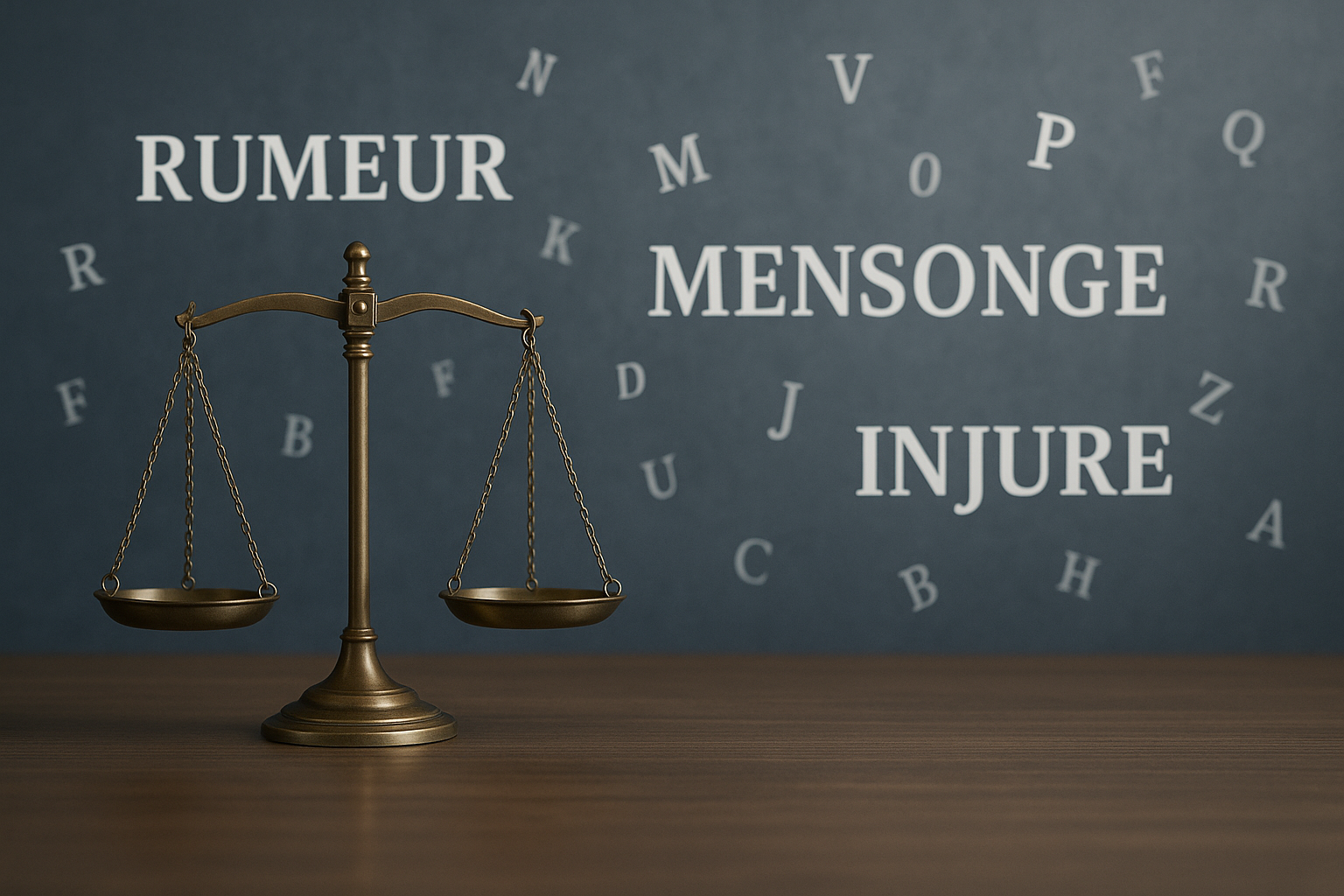Published on October 06, 2025
Defamation, under Quebec law, represents a delicate balance between freedom of expression and the protection of reputation. Courts assess each situation based on context, the public scope of the statements, and the intent behind their dissemination. A publication shared on social media, an online comment, or a rumor can therefore engage the civil liability of its author. Our firm assists victims of defamation to stop the harm, obtain compensation, and restore their reputation, while respecting the principles of justice and freedom of expression.

Learn more
Reputation is one of the most valuable assets a person can possess. When it is tarnished by false, malicious, or humiliating statements, it may constitute defamation. Such harm may take the form of words, writings, or electronic publications. It can also have serious consequences, both personally and professionally.
Quebec law specifically regulates the protection of reputation and provides remedies for victims of defamation.
What is defamation?
Defamation is defined as a wrongful and unjustified attack on an individual’s reputation (s. 298(1) Cr.C.). It consists of statements intended to ridicule, humiliate, despise, or incite hatred toward a person.
These statements must be of such a nature as to diminish the esteem of another person in the eyes of the public. Courts assess the situation from the perspective of a reasonable person placed in the same circumstances.
The legal framework for defamation in Quebec
Several legislative texts protect the right to reputation :
- Civil Code of Quebec :
- Section 3 establishes the right to respect for reputation and privacy.
- Section 35 prohibits any invasion of privacy without consent or legal authorization.
- Section 1457 sets out extra-contractual civil liability, which serves as the basis for defamation claims.
- Section 2929 provides for a one-year limitation period to bring an action, starting from when the victim became aware of the harm.
- Quebec Charter of Human Rights and Freedoms :
- Section 4 protects the right to dignity, honor, and reputation.
- Section 5 guarantees the right to privacy.
- Section 49 allows the victim to obtain compensation for damages suffered.
Conditions for bringing a defamation claim
The victim must prove three essential elements :
1. The harm
The person must prove that the statements actually harmed their reputation. Courts assess this element by asking whether a reasonable person would consider that the statements undermine reputation. Damages may be financial (e.g., job loss) or moral (e.g., stress, humiliation).
2. The fault
The author’s liability depends on their behavior :
- Malice: statements made intentionally to cause harm.
- Negligence: statements made without intent to harm but disseminated carelessly or irresponsibly.
3. Causal link
The victim must establish a direct connection between the defamatory statements and the harm suffered.
Burden of proof
In a defamation action, it is the plaintiff’s responsibility to prove that the statements are defamatory, that they caused harm, and that the author committed a fault. Courts therefore apply the reasonable person standard to analyze the situation.
Conclusion
Defamation is not a minor insult — it is a legally recognized violation that can cause serious damage to a person’s reputation. Quebec law, particularly through the Civil Code and the Charter, provides concrete remedies for victims.
However, the time limit to act is short — one year from when the victim became aware of the harm.
If you believe you are a victim of defamation, it is crucial to consult a lawyer quickly to assess your options and act before the deadline expires. For any questions about defamation or available remedies, contact our firm. Our civil law team will help you protect your reputation and assert your rights.